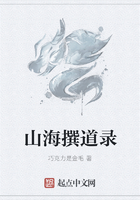Certainly she had never looked prettier, daintier, shown more breeding than she did out here among these Germans with their thick pasterns, and all the cosmopolitan hairy-heeled crowd in this God-forsaken place! The girl, unconscious of his stealthy regalement, was letting her clear eyes rest, in turn, on each figure that passed, on the movements of birds and dogs, watching the sunlight glisten on the grass, burnish the copper beeches, the lime-trees, and those tall poplars down there by the water. The doctor at Mildenham, once consulted on a bout of headache, had called her eyes "perfect organs," and certainly no eyes could take things in more swiftly or completely. She was attractive to dogs, and every now and then one would stop, in two minds whether or no to put his nose into this foreign girl's hand. From a flirtation of eyes with a great Dane, she looked up and saw Fiorsen passing, in company with a shorter, square man, having very fashionable trousers and a corseted waist. The violinist's tall, thin, loping figure was tightly buttoned into a brownish-grey frock-coat suit; he wore a rather broad-brimmed, grey, velvety hat; in his buttonhole was a white flower; his cloth-topped boots were of patent leather; his tie was bunched out at the ends over a soft white-linen shirt--altogether quite a dandy! His most strange eyes suddenly swept down on hers, and he made a movement as if to put his hand to his hat.
'Why, he remembers me,' thought Gyp. That thin-waisted figure with head set just a little forward between rather high shoulders, and its long stride, curiously suggested a leopard or some lithe creature. He touched his short companion's arm, muttered something, turned round, and came back. She could see him staring her way, and knew he was coming simply to look at her. She knew, too, that her father was watching. And she felt that those greenish eyes would waver before his stare--that stare of the Englishman of a certain class, which never condescends to be inquisitive. They passed; Gyp saw Fiorsen turn to his companion, slightly tossing back his head in their direction, and heard the companion laugh. A little flame shot up in her.
Winton said:
"Rum-looking Johnnies one sees here!"
"That was the violinist I told you of--Fiorsen.""Oh! Ah!" But he had evidently forgotten.
The thought that Fiorsen should have picked her out of all that audience for remembrance subtly flattered her vanity. She lost her ruffled feeling. Though her father thought his dress awful, it was really rather becoming. He would not have looked as well in proper English clothes. Once, at least, during the next two days, she noticed the short, square young man who had been walking with him, and was conscious that he followed her with his eyes.
And then a certain Baroness von Maisen, a cosmopolitan friend of Aunt Rosamund's, German by marriage, half-Dutch, half-French by birth, asked her if she had heard the Swedish violinist, Fiorsen.
He would be, she said, the best violinist of the day, if--and she shook her head. Finding that expressive shake unquestioned, the baroness pursued her thoughts:
"Ah, these musicians! He wants saving from himself. If he does not halt soon, he will be lost. Pity! A great talent!"Gyp looked at her steadily and asked:
"Does he drink, then?"
"Pas mal! But there are things besides drink, ma chere."Instinct and so much life with Winton made the girl regard it as beneath her to be shocked. She did not seek knowledge of life, but refused to shy away from it or be discomfited; and the baroness, to whom innocence was piquant, went on:
"Des femmes--toujours des femmes! C'est grand dommage. It will spoil his spirit. His sole chance is to find one woman, but I pity her; sapristi, quelle vie pour elle!"Gyp said calmly:
"Would a man like that ever love?"
The baroness goggled her eyes.
"I have known such a man become a slave. I have known him running after a woman like a lamb while she was deceiving him here and there. On ne peut jamais dire. Ma belle, il y a des choses que vous ne savez pas encore." She took Gyp's hand. "And yet, one thing is certain. With those eyes and those lips and that figure, YOU have a time before you!"Gyp withdrew her hand, smiled, and shook her head; she did not believe in love.
"Ah, but you will turn some heads! No fear! as you English say.
There is fatality in those pretty brown eyes!"A girl may be pardoned who takes as a compliment the saying that her eyes are fatal. The words warmed Gyp, uncontrollably light-hearted in these days, just as she was warmed when people turned to stare at her. The soft air, the mellowness of this gay place, much music, a sense of being a rara avis among people who, by their heavier type, enhanced her own, had produced in her a kind of intoxication, ****** her what the baroness called "un peu folle."She was always breaking into laughter, having that precious feeling of twisting the world round her thumb, which does not come too often in the life of one who is sensitive. Everything to her just then was either "funny" or "lovely." And the baroness, conscious of the girl's chic, genuinely attracted by one so pretty, took care that she saw all the people, perhaps more than all, that were desirable.
To women and artists, between whom there is ever a certain kinship, curiosity is a vivid emotion. Besides, the more a man has conquered, the more precious field he is for a woman's conquest.
To attract a man who has attracted many, what is it but a proof that one's charm is superior to that of all those others? The words of the baroness deepened in Gyp the impression that Fiorsen was "impossible," but secretly fortified the faint excitement she felt that he should have remembered her out of all that audience.
Later on, they bore more fruit than that. But first came that queer incident of the flowers.















